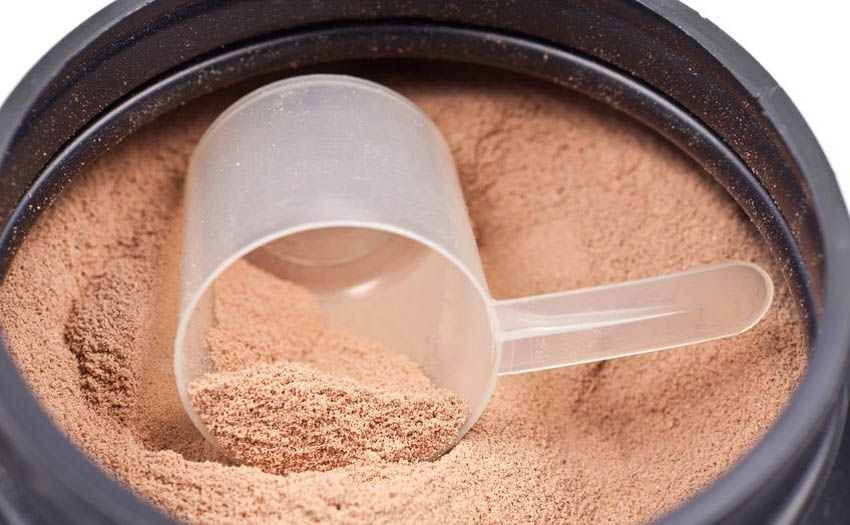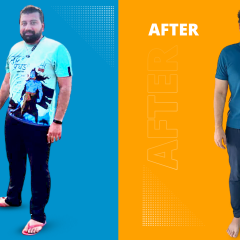
This blog is in continuation to my previous blog ‘Protein is not just about quantity, it’s also about quality’. If you missed it here is a link Protein is not just about quantity. It’s also about quality. I am never in favour of proteins powders but, if really required you can take them as supplements as an addition to the diet you eat. I emphasize on this because the focus of any diet should be food. Whole food is often preferable to powders because it can offer a whole spectrum of nutrients that powders cannot.
Protein powders are easy and convenient source of complete and high quality protein but these powders are devoid of other nutrients like fiber, vitamins and minerals which are got from our natural food items.
Calculate your protein requirement. See if you can meet them through your diet. Only if you are unable to give yourself the required quality and quantity of proteins then you should think to opt for protein supplements.
Choosing the protein powders: A tricky part
The tricky part is trying to pick a GOOD protein powder that will contribute to muscle gain and not break the bank.
Protein powders are basically divided into two categories:
- Animal source protein which include milk protein derivatives like whey and casein, beef and egg white protein.
- Vegetable source protein include soy, rice, pea, hemp and sprouted grain proteins
1. A) ANIMAL PROTEINS
Whey protein:
It is derived from milk. The protein portion of whole milk consists of 20% whey protein. It is most popular protein powder because of its taste, high quality and economically too it’s very convenient.
Whey protein comes in two varieties, whey concentrate and whey isolate.
Whey Concentrate
- This is a good source of protein powder that is absorbed at a moderate pace.
- It can be used both pre and post workout but typically it is good to include it as snack in between meals.
- It has low lactose level that is well tolerated by most lactose-sensitive people. It has trivial amounts of fat and carbs relative to your overall nutrient intake.
Whey Isolate
- It is one of the quickest absorbing proteins
- Whey isolate is virtually fat-free for those wishing to eliminate as much fat from their diet as possible. It is typically lactose free for those few individuals who are very sensitive to the low-lactose levels found in whey concentrate
- Isolates are great pre and post workout as they are absorbed quickly and can supply the muscle the nutrients needed to help recover and grow.
Casein or Milk Protein
- Casein constitutes 80 percent of milk protein.
- It takes longer digestion period as compared to whey concentrate and isolate.
- Its takes about 5 to 7 hours to fully breakdown and this is one of the reasons for not consuming it post workout.
- Before bed if you take in casein protein your body keeps absorbing and utilizing the nutrients even while you sleep. People also use casein during the day to help stay full and to keep a constant supply of protein in your body to supply the muscles with proper nutrition for hours after drinking the shake.
Egg protein:
- Like milk proteins, egg white is also naturally very low in fat and carbs.
- Egg white protein is cholesterol-free and an excellent choice for those who wish to avoid dairy products.
- B) PLANT PROTEINS:
They are derived from a variety of sources, including peas, hemp, sprouts, and grains. They’re rich in vitamins and minerals, and often provide antioxidants, amino acids, fiber and more. They are typically suitable for vegetarian or vegan diets. They’re also well tolerated by lactose-sensitive individuals.
Soy Protein
- It is the only plant-based protein considered to be a high-quality protein, containing all the essential amino acids in the ratios needed to support growth and development
- It is loaded with glutamine and arginine which helps to dilate blood vessels and allows nutrition to get into the muscles quicker.
- This type of protein can be used both pre and post workout or anytime throughout the day if needed to get in a meal/snack containing protein.
Conclusion
There are many different options of protein for you to choose from. Natural source of protein is the best but, based on your height, ideal weight and intensity of workout you may need to add a protein supplement into your diet. It is safe to take protein supplements if they are monitored properly as per your requirement. Getting all your protein from powders is not the best idea, as it could potentially restrict your intake of vitamins and minerals from other foods.
While there are no particular risks to consuming protein powder every day, you should not exceed your daily protein needs. If you can meet your protein needs with whole foods, it’s the best thing. But, when you’re crunched for time, protein supplements can be your biggest ally.









